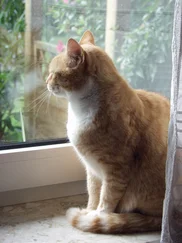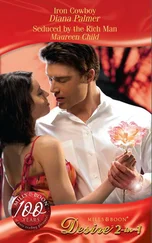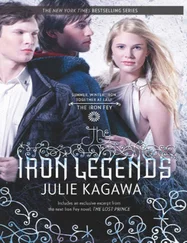'From long ago,' said Mr Thabane. 'From last year.'
We had come out on a broad dirt road. To our left stood a cluster of houses, proper houses, with brick walls and asbestos roofs and chimneys. Among them, around them, stretching into the distance across the flats, were squatter shacks.
'That building,' said the boy, pointing ahead.
It was a long, low building, a hall or school perhaps, surrounded by a mesh fence. But great lengths of the fence had been trampled down, and of the building itself only the smoke-blackened walls were still standing. In front of it a crowd had gathered. Faces turned to watch the Hillman's approach.
'Shall I switch off?' I said.
'You can switch off, there is nothing to be afraid of,' said Mr Thabane.
'I am not afraid, ' I said. Was it true? In a sense, yes; or at least, after the episode in the bush, I cared less what happened to me.
'There is no need to be afraid anyway,' he continued smoothly: 'your boys are here to protect you.' And he pointed.
I saw them then, further down the road: three khaki-brown troop-carriers almost merging into the trees, and, outlined against the sky, helmeted heads.
'In case you were thinking,' he concluded, 'that this was just a quarrel among blacks, a spot of faction-fighting. Look: there is my sister.'
My sister he called her, not: Florence . Perhaps I alone in all the world called her Florence. Called her by an alias. Now I was on ground where, people were revealed in their true names.
'She stood with her back to the wall, sheltering from the rain: a sober, respectable woman in a burgundy coat and white knitted cap. We threaded our way toward her. Though she gave no sign, I was sure she saw me. ' Florence!' I called. She looked up dully. 'Have you found him?'
She nodded toward the gutted interior, then turned away, not greeting me. Mr Thabane began to push past the throng in the entranceway. Embarrassed, I waited. People milled past, skirting me as though I were bad luck.
A girl in an apple-green school tunic advanced on me, her hand raised as if to give me a slap. I flinched, but it was only in play. Or perhaps I should say: she forbore from actually striking.
'I think you should look too,' said Mr Thabane, re-emerging, breathing fast. He went over to Florence and took her in his arms. Lifting her glasses aside, she put her head on his shoulder and burst into tears.
The inside of the hall was a mess of rubble and charred beams. Against the far wall, shielded from the worst: of the rain, were five bodies neatly laid out. The body in the middle was that of Florence 's Bheki. He still wore the grey flannel trousers, white shirt and maroon pullover of his school, but his feet were bare. His eyes were open and staring, his mouth open too. The rain had been beating on him for hours, on him and his comrades, not only here but wherever they had been when they met their deaths; their clothes, their very hair, had a flattened, dead look. In the corners of his eyes there were grains of sand. There was sand in his mouth.
Someone was tugging my arm. Dazed, I looked down at a little girl with wide, solemn eyes. 'Sister,' she said, 'sister,' but then did not know how to go on.
'She is asking, are you one of the sisters?' explained a woman, smiling benignly.
I did not want to be drawn away, not now. I shook my head.
'She means, are you one of the sisters from the Catholic Church,' said the woman. 'No,' she went on, speaking to the child in English, 'she is not one of the sisters.' Gently she unlocked the child's fingers from my sleeve.
Florence was surrounded by a press of people.
'Must they lie there in the rain?' I asked Mr Thabane.
'Yes, they must lie there. So that everyone can see. '
'But who did it?'
I was shaking: shivers ran up and down my body, my hands trembled. I thought of the boy's open eyes. I thought:
What did he see as his last sight on earth? I thought: This is the worst thing I have witnessed in my life. And I thought: Now my eyes are open and I can never close them again.
'Who did it?' said Mr Thabane. 'If you want to dig the bullets out of their bodies, you are welcome. But I will tell you in advance what you will find. 'Made in South Africa. SABS Approved.' That is what you will find.'
'Please listen to me,' I said. 'I am not indifferent to this… this war. How can I be? No bars are thick enough, to keep it out.' I felt like crying; but here, beside Florence, what right had I? 'It lives inside me and I live inside it,' I whispered.
Mr Thabane shrugged impatiently. His look had grown uglier. No doubt I grow uglier too by the day. Metamorphosis, that thickens our speech, dulls our feelings, turns us into beasts. Where on these shores does the herb grow that will preserve us from it?
I tell you the story of this morning mindful that the storyteller, from her office, claims the place of right. It is through my eyes that you see; the voice that speaks in your head is mine. Through me alone do you find yourself here on these desolate flats, smell the smoke in the air, see the bodies of the dead, hear the weeping, shiver in the rain. It is my thoughts that you think, my despair that you feel, and also the first stirrings of welcome for whatever will put an end to thought: sleep, death. To me your sympathies flow; your heart beats with mine.
Now, my child, flesh of my flesh, my best self, I ask you to draw back. I tell you this story not so that you will feel for me but so that you will learn how things are. It would be easier for you, I know, if the story came from someone else, if it were a stranger's voice sounding; in your ear. But the fact is, there is no one else. I am the only one. I am the one writing: I, I. So I ask you: attend to the writing, not to me. If lies and pleas and excuses weave among the words, listen for them. Do not pass them over, do not forgive them easily.
Read all, even this adjuration, with a cold eye.
Someone had thrown a rock through the windscreen. Big as a child's head, mute, it lay on the seat amid a scattering of glass as if it now owned the car. My first thought was: Where will I get a windscreen for a Hillman? And then: How fortunate that everything is coming to an end at the same time!
I tumbled the rock, from the seat and began to pick out the loose shards from the windscreen. Now that I had something to do I felt calmer. But I was calmer too because I no longer cared if I lived. What might happen to me no longer mattered. I thought: My life may as well be waste. We shoot these people as if they are waste, but in the end it is we whose lives are not worth living.
I thought of the five bodies, of their massive, solid presence in the burned-down hall. Their ghosts have not departed, I thought, and will not depart. Their ghosts are sitting tight, in possession.
If someone had dug a grave for me there and then in the sand, and pointed, I would without a word have climbed in and lain down and folded my hands on my breast. And when the sand fell in my mouth and in the corners of my eyes I would not have lifted a finger to brush it away.
Do not read in sympathy with me. Let your heart not: beat with mine.
I held out a coin through the window. There was a rush of takers. The children pushed, the engine started. Into thrust-out hands I emptied my purse.
Drawn up among the bushes where the road dwindled to a track stood the military vehicles I had seen, not three, as I had thought, but five. Under the eye of a boy in an olive rain-cape I got out: of the car, so cold in my wet clothes that I might as well have been naked.
I had hoped the words I needed would just come, but: they did not. I held out my hands, palms 'upward. I am bereft, my hands said, bereft of speech. I come to speak but have nothing to say.
Читать дальше












